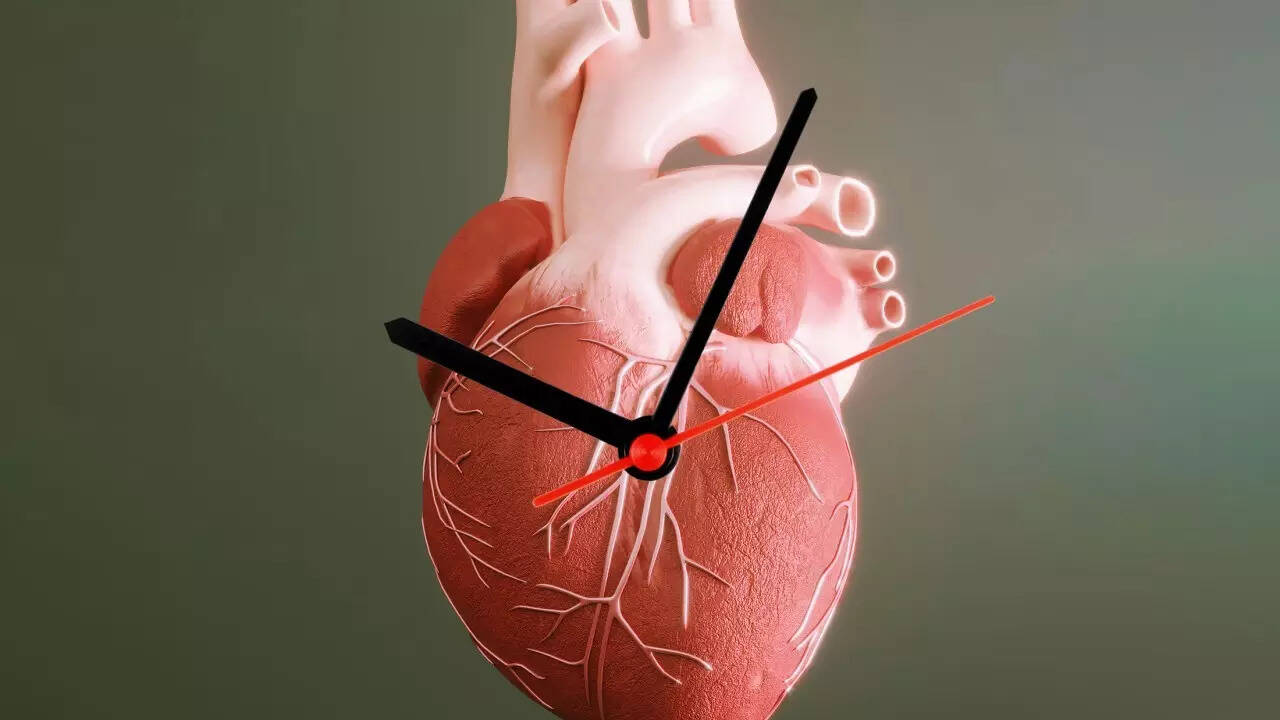ARTICLE AD BOX

Turns out, you’re not exactly ‘child’ at heart!A new nationwide study has shed light on a concerning trend: most American adults have hearts that are older than their real age, sometimes even by over a decade.
Using the PREVENT Heart Age Calculator developed by researchers at Northwestern Medicine, scientists found that the average heart age is 4 to 7 years older than a person’s actual calendar age.What does that mean? This means that even in your 40s or 50s, your heart could be aging like it's in its 60s or 70s.The silver lining amidst this troubling news? Cardiologists say your heart age is not fixed. By adopting a few evidence-based lifestyle habits, you can turn back the clock naturally and powerfully.
Why most American hearts are aging too fast
According to a large-scale study analyzing over 14,000 US adults aged 30 to 79, the average heart age for men was 56.7, despite their average chronological age being just 49.7. For women, the average heart age clocked in at 55.4, with an actual average age of 51.3. That’s a 7-year and 4-year gap, respectively.In some cases, especially among men from Black and Hispanic communities, the heart was found to be 8 to 9 years older than the person.
What’s driving this premature heart aging?The contributing factors are familiar: high blood pressure, poor diet, inactivity, obesity, smoking, diabetes, and chronic stress. But while these factors are widespread, they are also largely manageable, with some simple yet effective changes in habits.

7 simple habits to keep your heart young
You don’t need a gym membership, a strict diet, or expensive supplements to start rejuvenating your heart. Here are 7 expert-approved, research-backed habits that can help:
Eat mindfully
Your eating pattern is one of the most defining and deciding factors when it comes to health, especially your heart health. What goes in the stomach often leaves a lasting effect on the heart. Make sure the effect is a good one. Embrace the Mediterranean diet, rich in vegetables, whole grains, nuts, lean protein, and healthy fats like olive oil. Limit ultra-processed foods, sugar, and sodium. And yes, swear off those nasty bits of junk food!

Pro tip: Swap red meat for salmon or beans twice a week for better heart health.
Move your body (every step counts)
The more mobile you are, the better your heart health is. No matter what age you’re at, keep yourself active. Aim for at least 150 minutes of moderate exercise weekly. If you calculate, that’s just 30 minutes, 5 days a week. Walking, swimming, cycling, or dancing can lower blood pressure, improve cholesterol, and boost circulation.

Pro tip: Take walking meetings, use stairs, or stretch during screen breaks. Every step counts.
Prioritize sleep quality
No, you’re not being lazy or making excuses to hit the bed. Rest isn’t reward, it’s a necessity. Poor sleep is linked to higher risks of hypertension, obesity, and heart failure. Adults should get 7-9 hours of quality sleep per night.

Pro tip: Power down screens an hour before bed and aim for a consistent bedtime, even on weekends.
Manage stress (before it manages you)
Chronic stress elevates cortisol and blood pressure, damaging arteries over time. Stress can also lead to poor sleep habits, which eventually catalyze the risk of heart disease.
Try meditation, deep breathing, journaling, or even a walk outdoors.

Pro tip: Just 10 minutes of daily mindfulness can lower your heart rate and reduce anxiety.
Quit smoking
Smoking is one of the most significant accelerators of heart aging. It’s not cool; in fact, the long-term effects of smoking can be extremely cruel. Even secondhand smoke increases risk. The benefits of quitting begin within 24 hours.

Pro tip: Use a combination of support groups, nicotine replacement, or prescription medication if needed.
Keep track of the “Big 4”
This one might sound a bit daunting; however, the regular checks pay off in the long run. Monitor your blood pressure, cholesterol, blood sugar, and BMI regularly. Keeping these in the healthy range can reduce your heart age by several years.

Pro tip: Use free apps or smart devices to track your numbers at home and share them with your doctor.
Know your heart age
Awareness is the very first and the most crucial step of prevention. Take five minutes to use the free PREVENT Heart Age Calculator online.
Discuss the results with your healthcare provider to build a personalized prevention plan.

Pro tip: Knowing your heart age can make you more likely to take action, especially if it’s older than expected.
‘Heart Age’: Why it matters and how you can turn the clock
Heart age is a more intuitive and motivating way to convey cardiovascular risk than traditional numbers or percentages. As Dr. Sadiya Khan, a cardiologist and lead researcher of the study, explained, “Telling someone they have a 7% risk of a heart attack in 10 years doesn’t land the same way as saying their heart is aging 10 years faster than they are.”This approach may encourage earlier intervention, particularly in people under 50 who often think heart disease is a concern for “older” adults. But the truth is, heart disease remains the leading cause of death in the US, and it begins silently, long before symptoms appear.
However, despite the grim reality, the encouraging truth is that heart aging isn’t inevitable.With consistent, small lifestyle changes, you can lower your heart age, reduce your risk of heart attack and stroke, and improve the quality of your life.It's never too early or too late to start. Whether you're 30 or 70, your heart responds to positive changes, often within weeks.So if your heart feels older than you are, take that as a wake-up call, not a life sentence. Incorporate these simple habits into your daily routine, and your heart may thank you with many more vibrant, active years to come.
Meet Kobe, the toddler chef who's winning hearts in the internet



.png)
.png)
.png)
















 14 hours ago
4
14 hours ago
4










 English (US) ·
English (US) ·